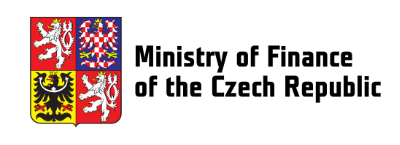Government again approves Ministry of Finance and CNB recommendation not to set euro adoption date yet
The Government has approved the joint recommendation of the Ministry of Finance of the Czech Republic and the Czech National Bank not to set a target date for adopting the euro yet. The Czech Republic will therefore not attempt to enter ERM II in 2017.
The decision, based on this year’s “Assessment of the Fulfilment of the Maastricht Convergence Criteria and the Degree of Economic Alignment of the Czech Republic with the Euro Area”, was adopted by the Government at its meeting on 14 December 2016. The Government has been assessing this document on the Czech Republic’s preparedness for adopting the euro every year since the country joined the European Union in 2004.
Resolution and supervisory mechanisms have been introduced or bolstered in the European Union in response to issues relating to the global financial and economic crisis and the subsequent European debt crisis. Macroeconomic and budgetary surveillance has been tightened. New European institutions have also come into existence. These changes are fundamentally changing the conditions and obligations arising from the Czech Republic’s potential membership of the euro area. Sustainable fulfilment of the Maastricht convergence criteria accompanied by sufficient alignment of the Czech economy with the euro area economy is no longer a sufficient condition for adopting the single currency. It can be expected that euro area entry will in reality also be conditional on participation in the new institutions and mechanisms. Based on the current information, the costs relating to joining the European Stability Mechanism would be particularly substantial upon the Czech Republic’s entry into the euro area.
The preparedness of the Czech Republic itself to adopt the euro has improved compared to previous years. The Czech Republic is compliant with the criterion on price stability, the criterion on the government financial position and the criterion on the convergence of interest rates. It is formally non-compliant with the criterion on participation in the exchange rate mechanism, as it has not joined the mechanism. However, the country is likely to be compliant with all the Maastricht criteria except for ERM II participation in the medium term.
As regards the real economy, the alignment of the Czech economic cycle with the euro area economy has increased. The main obstacles to euro adoption include the still unfinished process of real economic convergence of the Czech Republic, including convergence of the price level towards the euro area average. Given population ageing, the long-term sustainability of public budgets is still unresolved in terms of the configuration and functioning of the public pensions, health care and long-term care systems. In some respects, labour market flexibility remains insufficient, and differences persist in the structure of the Czech economy compared to the euro area. The situation in the euro area cannot be assessed as sufficiently stabilised either.
Given the aforementioned facts, the Ministry of Finance and the Czech National Bank have concluded that the Czech Republic has not yet made sufficient progress in laying the groundwork for euro adoption to allow it to set a target date for entry into the euro area.
